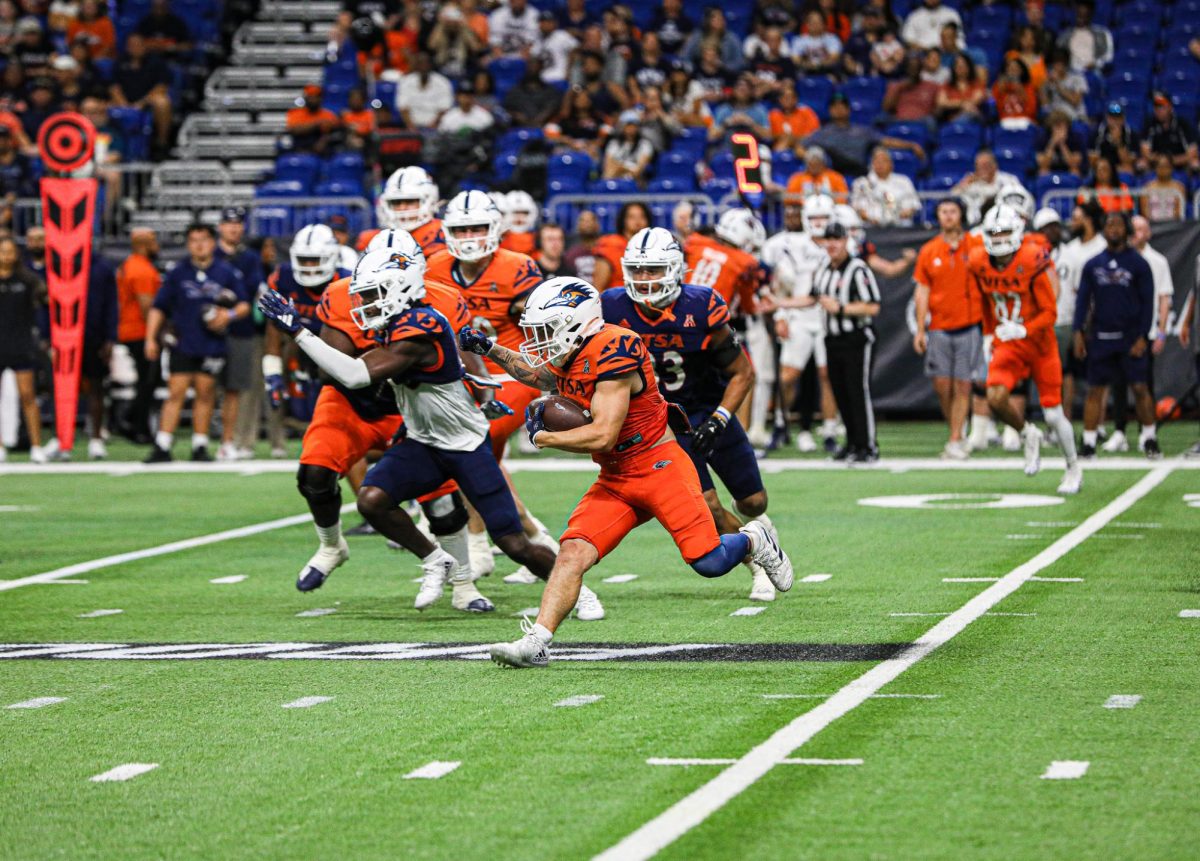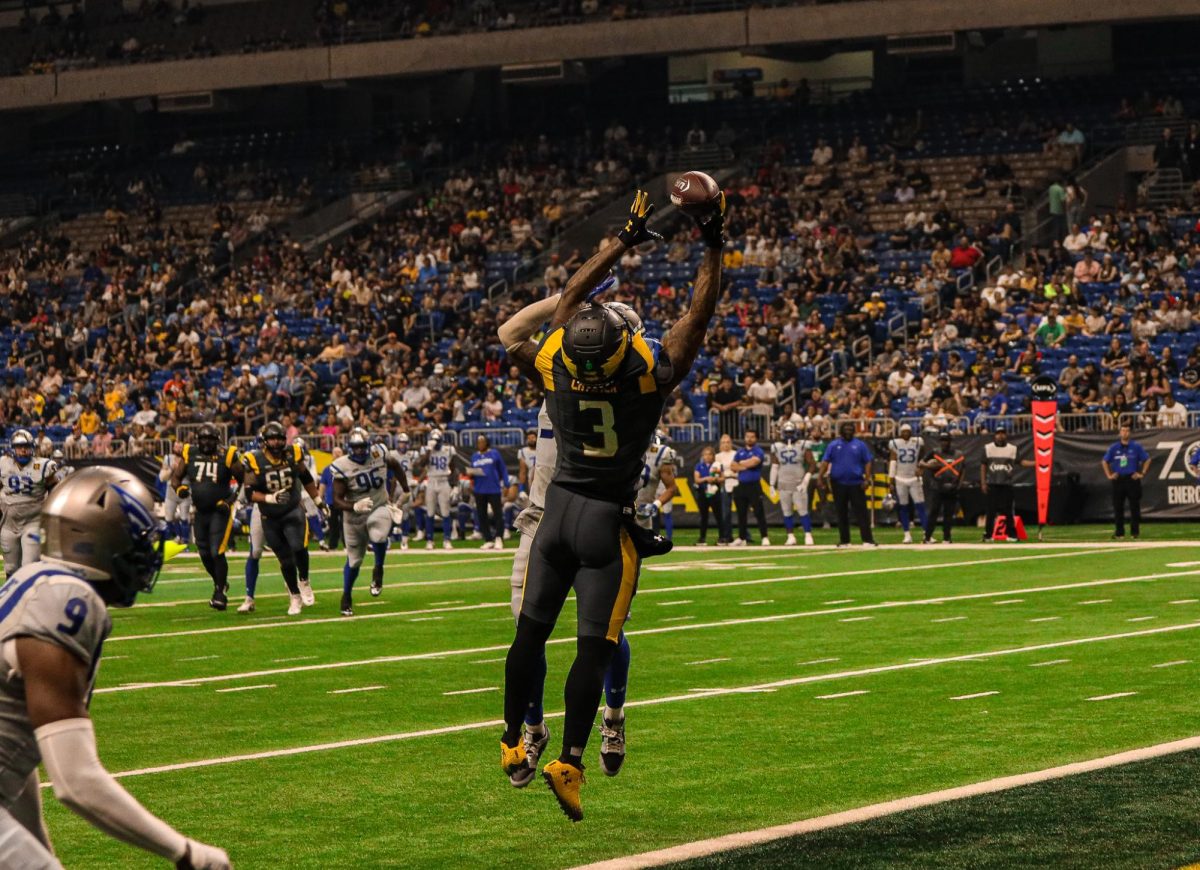-_daryl__gallery.jpg)
Daryl Smith
The UTSA eSports Community is re-defining what it means to be a sports team. Just before the end of the fall semester the organization was given the official word that they were allowed to operate as a club sport.
Traditionally, people think of sports as being a con- tact, hands-on activity such as basketball or football. Playing video games such as League of Legends, Dota 2 or Starcraft 2 usually does not fit into such defini- tions; however, Brad Honn – president and founder of the UTSA eSports Community – is looking to change that image.
“It’s definitely not a competitive sport in the tradi- tional sense, but it’s definitely a mental competition,” says Honn. “These guys put in a lot of time and dedica- tion into these games and to better themselves and to better themselves as a team.”
Beginning as an online post in the UTSA subreddit in April 2010, eSports has grown from 10 members to over 400.
“I kind of just looked around and thought there’s a lot of people that play video games and somebody should really do something about that,” says Honn. “They have this saying in poker that if you walk into a poker room and you can’t immediately spot the sucker, it’s you. Well I kind of looked around and saw that nobody was doing something and somebody should and that person just happened to be me. So I did.”
eSports isn’t anything less than serious in their ef- forts. While most of their practicing takes place online, the teams practice between 20-to-30 hours a week.
“I have my teams on a strict regimen and schedule. They practice the same time every week every day,” says Honn. “We go over tapes of our matches. We go over what we did right, what we did wrong.”
The push for becoming an official UTSA club sport was driven not only for the licensed use of the official UTSA name and logo, but also for the need for fund- ing.
“A lot of our teams are already competing in colle- giate leagues. There’s a league called the Collegiate Star League that hosts a couple of different games, and we have six teams across different games in those leagues right now. That particular league hosts regional LAN, and they’re not anywhere near here,” says Honn. “The
closest one is in San Diego, California, so we’re defi- nitely looking to maybe find a little bit of funding to send them out there because I believe that our teams have a really fair chance at placing really well in those types of tournaments.”
Honn notes that while they are not currently look- ing to provide their members with stipends, their main concern is providing their teams the opportunity to travel to tournaments and provide them with the nec- essary equipment for success.
Honn and the rest of the eSports executive board hope to be at the forefront of a movement to make gaming a recognized collegiate sport. Only a few other universities have gaming clubs and communities listed as official sports.
“We are actually ahead of the entire University of Texas system,” notes Honn. “At this point I can tell you UT Austin is heavily considering having their video game club become a club sport. I think it’s definitely the sort of thing you’re going to see become a lot more popular over the next few years.”
“I definitely think the more hardcore athletes are go- ing to have a really tough time understanding how this could possibly be a sport,” says Honn on how current UTSA athletes will respond to their official club sport status. “But at the same time these kids are the same kids that will grind out Madden for hours and hours and hours, so I don’t think it’s totally far-fetched for them to understand that it’s a sport.”
Honn is not too worried about the current genera- tion which, he says, has grown up with video games as a hobby.
“It’s not necessarily this generation that I’m worried about, it’s more the one before us where if you’re not on a football field hitting people, you’re not on a bas- ketball court doing suicides, then it’s not a sport,” says Honn. “But these kids work equally as hard as anybody else, maybe not in a physical sense, but definitely in a mental sense.”
Honn hopes that with the continued progress and dedication of the UTSA eSports Community their teams and players can create a foundation for the UTSA name on a nationally recognized level.
“I just hope that in the future people can make a decision for what university they attend based on ex- tracurricular, and I think that we are on the forefront of that,” says Honn. “I’m definitely looking forward to seeing what happens in the future.”











